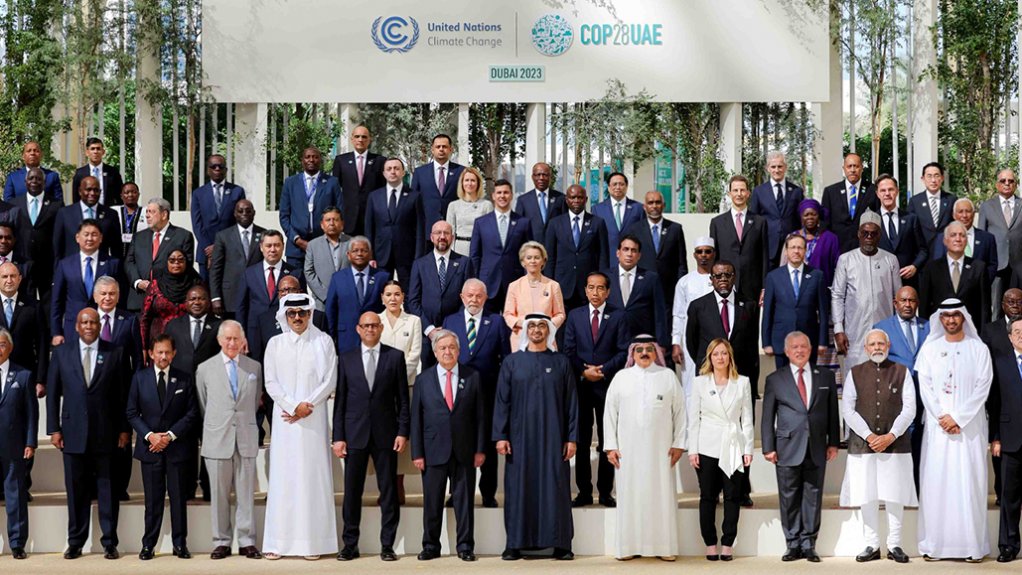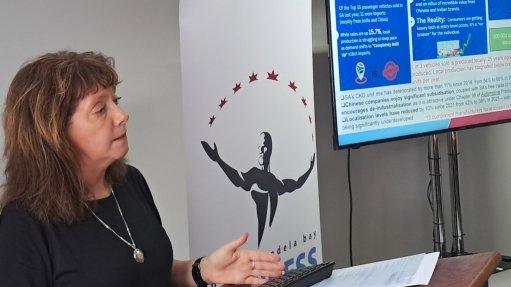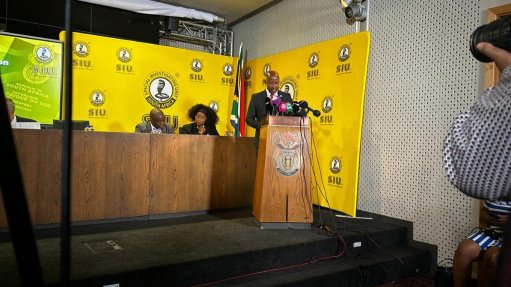Reliable electricity must be prioritised over transition


DOUBLE STANDARDS Western leaders often pressure African countries to transition to renewable energy without considering the realities of these countries
The sheer urgency of addressing energy insecurity in Africa demands that a reliable grid is prioritised first and other energy concerns, such as transitioning to renewable-energy sources, second, says energy advocacy group African Energy Chamber executive chairperson NJ Ayuk.
Ayuk critiques western leaders that often urge African nations to make a rapid transition from fossil fuels to renewable-energy sources, stating “they seem to think that African nations can switch to renewable-power sources fairly easily, as if a good energy infrastructure was already in place”.
However, he notes that roughly half of the population in Africa lacks access to electricity and amenities such as refrigeration.
In contrast, the majority of homes have had access to electricity since 1930 in the UK and 1960 in the US. Currently, Britain generates 41% of its electricity from renewable sources while the US only recently saw its renewable generation outpace coal.
Ayuk asserts that while these are worthy milestones, both nations have been using and expanding their fossil fuel-based grids for nearly a century. Both countries dedicated decades to industrialisation and the development of robust infrastructure prior to the successful implementation of green policies.
“I don’t believe that every single African State must follow the same timeline, especially as renewable technology improves. I do, however, ask long-industrialised nations to consider the vast differences between their energy landscapes and ours,” he says.
Different Needs
Further, many Western States supplement their grids with wind or solar but ultimately rely on natural gas, oil or coal. An example is the US, which generates 60% of its electricity with fossil fuels including gas and coal, and 21% with renewables. “The hard truth remains that fossil fuels are still more reliable,” Ayuk says.
He illustrates the reliability of fossil fuels by citing that natural gas has a capacity factor of 65%. This means that gas-powered plants operate at full power 65% of the time, while wind and solar operate at 36% and 25% respectively. In other words, these renewables are about half as reliable as natural gas, he says.
Ayuk explains that asking developing nations to ignore natural gas is essentially requesting that they ignore half their power capacity.
“It’s a declaration that Africans deserve half the energy, half the standard of living, and half the safety of their Western peers,” he says.
Ayuk argues that while it is admirable and forward-thinking that many modern States supplement their grids with wind or solar, they have the luxury of a safe, reliable, and established fossil fuel grid to fall back on in case of failures.
He asserts that it is significantly easier to make an existing network eco-friendly than it is to build a ‘green’ network from the ground up. Therefore, once Africans have universal access to electricity, climate-centric conversations will be much more welcome.
Different Costs
The African continent hosts 70% of the least developed nations in the world, with South Africa being the only fully industrialised State.
“It’s one thing to hear these statistics, and quite another to make decisions on the ground of a developing nation. I believe that many talented, well-meaning Western thinkers simply aren’t accustomed to the fiscal environment that African leaders operate in,” Ayuk says.
For example, he cites the logistics behind solar panels. In the US, it can cost anywhere from $15 000 to $35 000 to purchase and install a panel — excluding the upfront costs of fixing a roof that is not solar-ready, the recurring cleaning and maintenance fees, or replacing the panels every 20 to 30 years.
Ayuk puts forward that for undeveloped areas, those fees are just the tip of the iceberg. Even if a subsidy pays for every panel, transporting them to their destinations is challenging as there is very little in terms of reliable rail or road infrastructure, particularly in poor areas. Further, the labour costs of finding people to install, repair and replace the panels adds to the overall cost of integrating solar.
“Once these panels are magically purchased, installed and repaired, the biggest problems still remain: storing and transmitting the energy,” says Ayuk.
He notes that even “first-world nations” have not overcome the technological hurdles of creating reliable, long-term batteries and long-distance transmission for renewable plants. Developing, much less implementing, that infrastructure will entail staggering expenses even for an industrialised nation.
Ayuk does not discourage solar solutions as a whole, asserting that the technology has great potential for Africa, which accounts for 60% of the world’s best solar resources.
However, he explains that, currently, widespread renewable energy use is not realistic for most developing nations, and the continent’s capital is limited, which means that capital must be invested in more tried and true solutions.
Different Investment
Ayuk points out that attracting foreign investment into Africa is difficult under the best of circumstances. Despite the enormous potential of natural resources and growing population, investors often put African projects on the chopping block first.
As highlighted in African Energy Chamber’s ‘2024 Outlook Report’, the ratio between actual greenfield spending and potential spending remains concerningly low. Further, those numbers only involve investments into tried and true fossil fuel exploration — pouring billions of dollars of capital solely into renewables is an even less feasible venture.
“When it comes to renewables, we’re dealing with relatively fragile and unreliable technology, along with the challenges of high startup costs, poor infrastructure, and urgent energy needs,” he says.
Ayuk puts forward the financial pledges made by developed States at COP15, where wealthy nations acknowledged the transition challenges facing developing nations and pledged $100-billion by 2020 to help them fight climate change. However, thirteen years later, the real spending value came in at around $24.5-billion.
“Climate promises do not often survive first contact with a chequebook,” he concludes.
Article Enquiry
Email Article
Save Article
Feedback
To advertise email advertising@creamermedia.co.za or click here
Press Office
Announcements
What's On
Subscribe to improve your user experience...
Option 1 (equivalent of R125 a month):
Receive a weekly copy of Creamer Media's Engineering News & Mining Weekly magazine
(print copy for those in South Africa and e-magazine for those outside of South Africa)
Receive daily email newsletters
Access to full search results
Access archive of magazine back copies
Access to Projects in Progress
Access to ONE Research Report of your choice in PDF format
Option 2 (equivalent of R375 a month):
All benefits from Option 1
PLUS
Access to Creamer Media's Research Channel Africa for ALL Research Reports, in PDF format, on various industrial and mining sectors
including Electricity; Water; Energy Transition; Hydrogen; Roads, Rail and Ports; Coal; Gold; Platinum; Battery Metals; etc.
Already a subscriber?
Forgotten your password?
Receive weekly copy of Creamer Media's Engineering News & Mining Weekly magazine (print copy for those in South Africa and e-magazine for those outside of South Africa)
➕
Recieve daily email newsletters
➕
Access to full search results
➕
Access archive of magazine back copies
➕
Access to Projects in Progress
➕
Access to ONE Research Report of your choice in PDF format
RESEARCH CHANNEL AFRICA
R4500 (equivalent of R375 a month)
SUBSCRIBEAll benefits from Option 1
➕
Access to Creamer Media's Research Channel Africa for ALL Research Reports on various industrial and mining sectors, in PDF format, including on:
Electricity
➕
Water
➕
Energy Transition
➕
Hydrogen
➕
Roads, Rail and Ports
➕
Coal
➕
Gold
➕
Platinum
➕
Battery Metals
➕
etc.
Receive all benefits from Option 1 or Option 2 delivered to numerous people at your company
➕
Multiple User names and Passwords for simultaneous log-ins
➕
Intranet integration access to all in your organisation



















